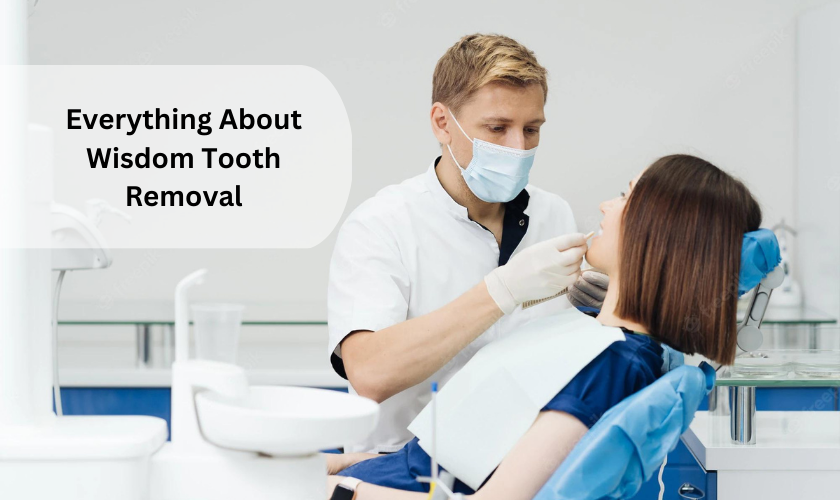
Everything About Wisdom Tooth Removal
Do you feel a sharp pain in your jaw? Wisdom tooth removal may be necessary to relieve that discomfort. Wisdom teeth can cause problems if they are not removed, such as overcrowding of the mouth and infection. This blog will cover everything you should know about it, including why it is important, what to expect during the procedure, and how to care for your mouth afterwards.
What are Wisdom Teeth?
Wisdom teeth, also known as third molars, are the last set of teeth in the back of your mouth. They usually come into a person’s late teens or early twenties. Wisdom teeth are often removed because they can cause overcrowding or be difficult to clean, leading to infection.
Wisdom Tooth Impact
Wisdom teeth can cause a number of problems if not taken care of properly. They may become impacted (stuck) in the jaw or erupt at an angle and push other teeth out of alignment. Wisdom teeth can also be difficult to clean, leading to an increased risk of infection and cavities.
Wisdom Tooth Removal
It is a common dental procedure that involves the extraction of one or more wisdom teeth from your mouth. Your dentist will use local anesthesia (numbing medicine) to make sure you don’t feel any pain during the procedure. The dentist will then cut away some of the gum and bone around the wisdom teeth in order to access them, then use forceps to remove them.
Wisdom Tooth Recovery
After your wisdom tooth removal, you will likely experience some swelling, bruising, and soreness in your mouth. It is important to follow your dentist’s instructions for aftercare, such as taking pain medication and eating soft foods. You should also avoid smoking or drinking alcohol during the healing process.
Wisdom Tooth Extraction Cost
The cost of wisdom tooth removal can vary greatly depending on factors such as the complexity of the procedure, where you live, and your insurance coverage. Wisdom tooth extraction typically ranges from $100-$500 per tooth for simple extractions, and can be more expensive for complex procedures.
Wisdom Tooth Insurance
If you have dental insurance, it may cover part or all of the cost of your wisdom tooth extraction. It is important to check with your insurance company before the procedure to find out what is covered and how much of the cost you will be responsible for paying.
Wisdom Tooth Payment Plans
Many dentists offer payment plans or discounts that can help cover the cost of wisdom tooth removal if you do not have dental insurance. Ask your dentist about their payment options before the procedure so you can be sure to have the money available when it is time for the extraction.
Wisdom Tooth Financing
If you do not have dental insurance or are unable to cover the cost of wisdom tooth removal with a payment plan, there are many financing options available for dental procedures. Ask your dentist about financing options or look online to find out more about the different types of loans available.
Conclusion
Wisdom tooth removal can help relieve pain and prevent overcrowding, infection, and cavities in the mouth. It is important to understand what to expect during the procedure and how to take care of your mouth afterwards. It can be expensive, so it is wise to check with your insurance provider and explore financing options before the procedure.
FAQs
Q: Is wisdom tooth removal painful?
A: It is done with local anesthetic so you should not feel any pain during the procedure. Afterwards, you will likely experience some soreness and discomfort for a few days.
Q: How much does wisdom tooth removal cost?
A: The cost of wisdom tooth removal can vary depending on factors such as the complexity of the procedure, where you live, and your insurance coverage. Wisdom tooth extraction typically ranges from $100-$500 per tooth.
Q: What should I expect after wisdom tooth removal?
A: After the procedure, you will likely experience some swelling, bruising, and soreness in your mouth. It is important to follow your dentist’s instructions for aftercare, such as taking pain medication and eating soft foods. You should also avoid smoking or drinking alcohol during the healing process.
